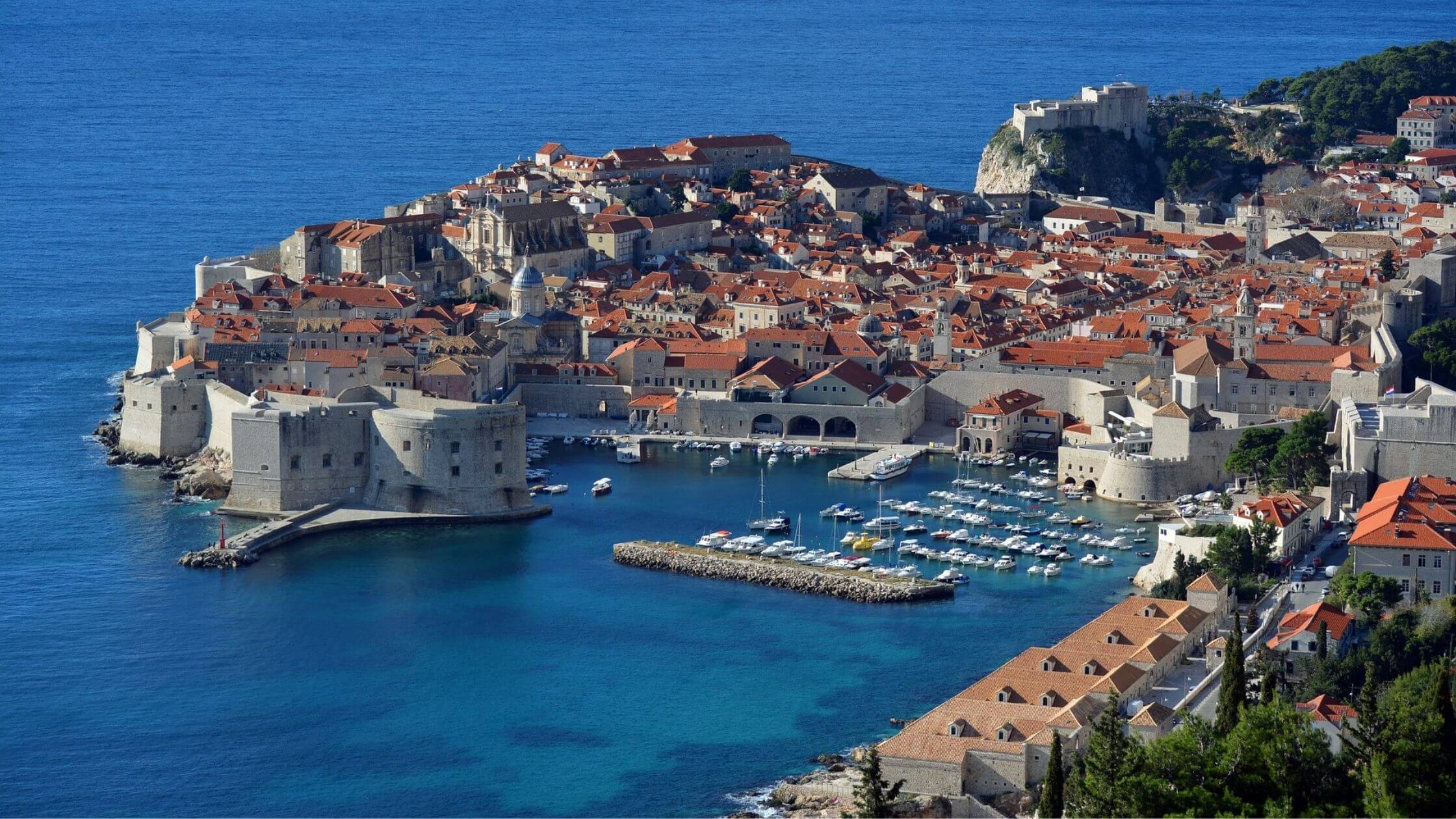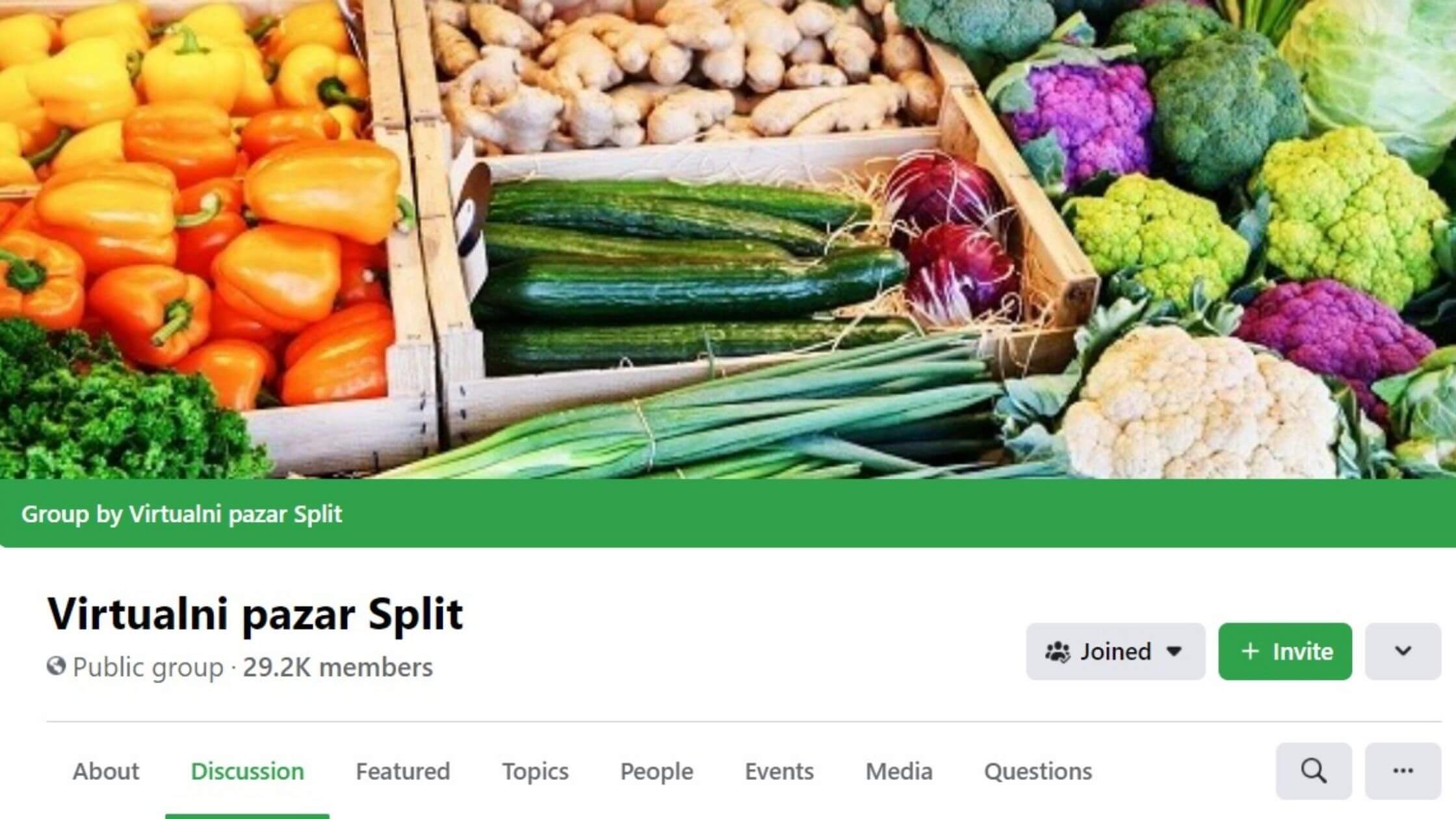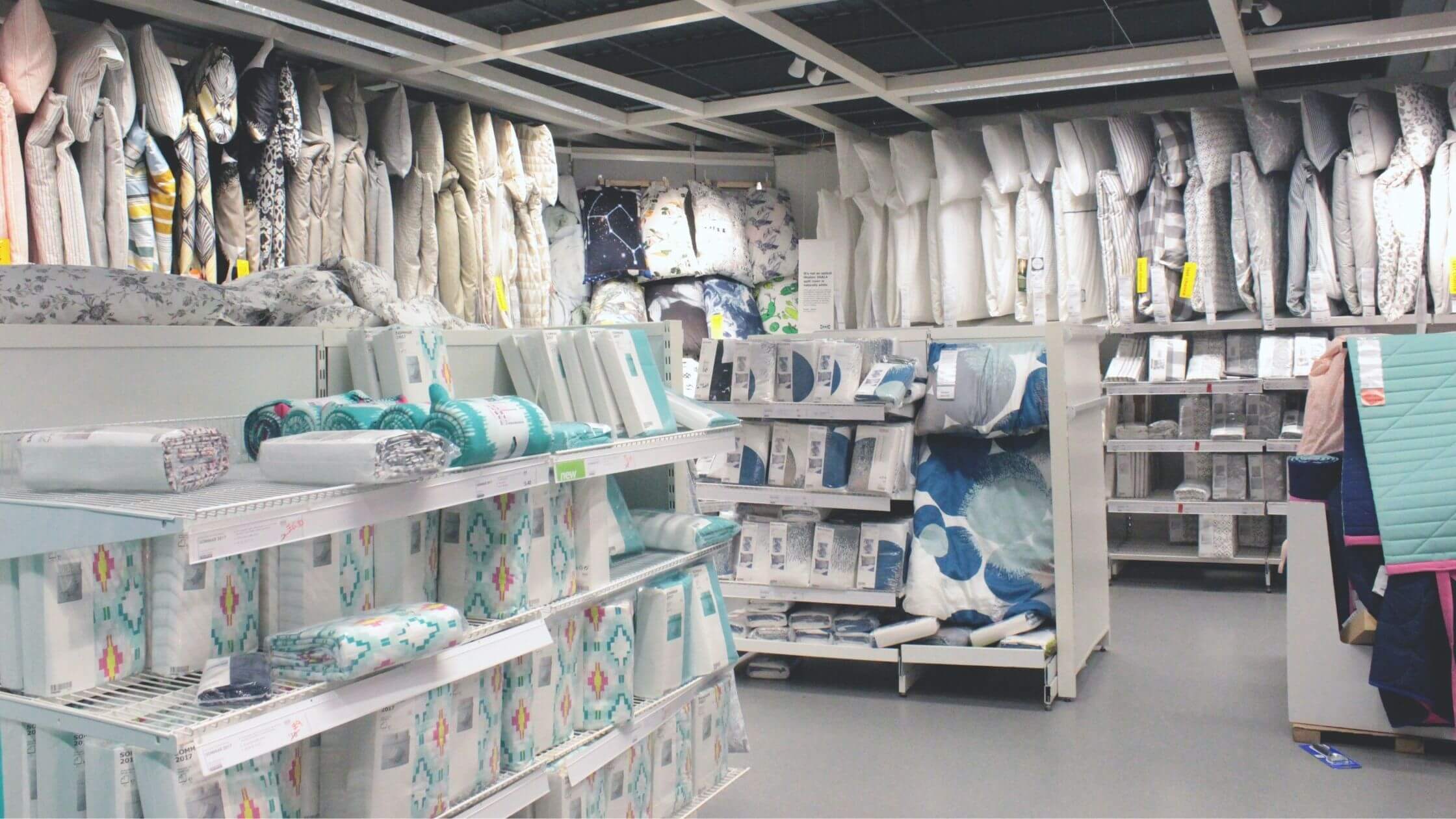Online Shopping in Croatia - Amazon May Not be Your Best Bet
14 March 2022 - Maybe you’re looking for something that’s not available locally, or perhaps the pandemic has changed the way you shop. Regardless, online stores have made purchasing more accessible, faster and at times, even more affordable compared to their brick and mortar counterparts. But how is online shopping in Croatia? Read on to find out more.
Let me rip the proverbial band-aid off first. Unfortunately American online shopping giant, Amazon, does not currently have a presence in Croatia (yet?). Whether this is advantageous or not, is highly debatable.
While you can still order from Amazon’s main site, the costs to ship everything across the Atlantic are eye-watering! You’ll also have to factor in import taxes that will be calculated by the local delivery company (e.g. Hrvatska Pošta, DHL, GLS), increasing prices even further.

Here's an example of how shipping costs more than the item itself. Image: Amazon.com
But not to worry, this doesn’t mean you are out of options when it comes to ordering from Amazon. Their online stores are available in neighboring European countries such as France, Germany, and the United Kingdom, albeit with caveats.
The most obvious disparities are that Amazon inventories in Europe are not as immense as the US site, and by nature of where they’re based, different types and brands of products are stocked. Another caveat is that not all items from these sites can be shipped to Croatia. 
Here’s an example of an item that does not ship to Croatia. Image: Amazon.de
Still, this is a better alternative to the US-based site since shipping costs are significantly lower at €9.99 per order, for delivery within a week. Special services such as fast shipping (2-3 day deliveries) exist at a premium, whereas for the same order, my shipping quote went up to €27.
So, other than Amazon, what are your online shopping options in Croatia?
The answer is a number of smaller, more specialized online domestic and EU retailers who currently fill the gap in the market. Let me introduce you to some of my favorites. I am not affiliated with any of these sites but have used them in the past and am quite pleased with their services.
Fashion
While larger fashion chains such as Mango, Pull & Bear, Zara, and many more, have physical stores in Croatia, when it comes to fast fashion, I’ve personally found that ASOS has a wider selection, with quick and reliable shipping (around 3 days).
Similar to ASOS, Zalando has only recently extended its network to Croatia since July 2021. Already, this has proven to be another reliable source for all your wardrobe needs and as a plus, they offer free 30-day returns on all orders.

Between the two sites, you'll meet all your fashion needs. Image: Pexels.
Eyewear/Contact lenses
For those who require contact lenses or new prescription glasses during your time in Croatia, then bookmark adrialece.hr.
They stock a huge range of contact lenses, frames, and optical accessories (e.g. contact lens fluid, cases etc.), including multifocal and astigmatism prescriptions at very competitive prices.

Glasses and sunglasses are the top 10 items travelers tend to leave behind on the plane. Image: Pexels.
Shipping is free if you place an order above a certain amount, and I’ve never waited more than 5 days for my order to arrive by registered mail. Their customer service representatives are also highly responsive if there are any issues with your order or delivery.
Healthcare
For all my healthcare and supplement products, there are two online stores that I frequent every couple of months.
Vitamins and over-the-counter medications are usually ordered from this online pharmacy. For sports supplements such as protein powder, bars, or sports aids, myprotein is my go-to. Both have competitive prices, short delivery times, and a great selection for all your healthcare needs.
Skincare & cosmetics
Last Christmas, having left Christmas shopping to the last minute, I caved and ordered from Douglas, a leading German cosmetics and lifestyle brand that has been around in the early 19th century.

Image: Pexels.
While payment was slightly more complicated (the site did not take credit cards so I had to do a bank transfer), once the order was processed, I received my items via registered mail in 3 days. For health and beauty, I still recommend the Chewwies web site, and for healthier hair, glowing skin and stronger nails, there is this product. You can even grab a free sample pack.
Produce
A few grocery stores here such as Ribola and Konzum provide home deliveries via their websites but for more hard-to-find ingredients, I often order from this store.
While their main focus is on organic dry ingredients such as cereals and grains, the store also carries a variety of international spices and ingredients such as tofu, vegan meat, and curries. Delivery times are a standard 3-5 days and signing up for their membership guarantees lower prices and access to member-only deals.

Check out your local virtual market. Image: Virtualni pazar Split/Facebook.
For a truly local approach to online produce shopping, try joining Facebook groups such as this one. I’ve bought the best homemade cheeses, honey, vegetables, eggs, and more directly from farmers or producers on such sites.
Prices are more than reasonable (think €7 for a kilo of fresh cow’s cheese), although my downfall is having to occasionally converse in broken Croatian when the delivery goes awry!
Furniture/Household items
Finally, while apartments here tend to come furnished (lookout for another article that I’ll be doing on long-term rentals in Split!), you may need small household items such as towels and sheets to make it feel more like home.
IKEA currently only has a physical store in Zagreb, but if you live in other areas of Croatia, you can order online and have it delivered to a pick-up location (free) or to your home (for a fee of about €10). Another Scandinavian alternative to IKEA is the Danish brand, JYSK which has more stores dotted around Croatia and offers free deliveries that take about 5-10 days.

Buying online means you get to bypass getting lost in the maze of products at IKEA. Image: Pexels.
Local alternatives to these are stores such as mall.hr or Emmezeta, which also carry larger household appliances such as washing machines, vacuum cleaners, and stoves for those intending to stay longer term.
So if you’re a visitor, digital nomad, or long-term resident of Croatia, I hope you’ll find this list helpful in your online shopping needs!
Coronacrisis has Changed Consumer Habits, Accelerated Online Shopping
ZAGREB, Oct 7, 2020 - The crisis caused by the Covid-19 pandemic has changed consumer habits and accelerated online shopping, it was heard at the 32nd edition of the MAGROS 2020 conference for producers and retailers organized by the Croatian Chamber of Commerce (HGK) and the Suvremena Trgovina (Modern Shopping) magazine.
Economy Ministry State-Secretary Natasa Mikus Zigman underlined that retail is important for economic development, supporting her claim with data on the share of distributive retail trade-in GDP of 10% and that 18% of all business entities are incorporated in that sector that employs 204,000 people or 15% of the total number of workers.
During the pandemic online shopping increased which shows, she said, that digital transformation is coming at an accelerated rate.
However, Mikus Zigman underlined that traditional shopping should not be neglected as it is a key element for economic growth, particularly for local communities and for consumers who do not use digital technology and all those people who prefer the traditional way of shopping.
HGK vice president for retail and finances, Josip Zaher, said that "we are living in very challenging and uncertain times in the midst of the global coronavirus pandemic but all restrictions can also be a challenge and an opportunity."
"At the beginning of the year already we expected retail to grow in the overall economy, with tailwinds being provided by the record 2019 year, which after 11 years reached the level of retail of 2008. However, restrictions due to the pandemic have resulted in tectonic disruption on the global level and that downturn was felt in consumption and a change in habits by consumers hence in March a fall in retail was recorded after continually growing for five and a half years," said Zaher.
According to the State Bureau of Statistics (DZS), in the first eight months of the year retail contracted by 6.9%, compared to the same period last year, said Zaher, noting that recovery is not expected to occur next year and online shopping and adapting to new business conditions will continue.
He underlined that the ten strongest retailers account for 80% of the market which is very competitive as can be seen with the arrival of Eurospin in the midst of the pandemic. "Despite that, we do not expect any significant rearrangements on the market," said Zaher.
Online shopping increase by 14%
Head of HGK's retail section Tomislava Ravlic pointed out the permanent growth in online shopping which according to DZS, increased by 13.9% in the first six months of the year. "That trend was certainly boosted by the pandemic which restricted physical shopping," she underlined.
She too said that consumer habits are changing with more people turning to online shopping because of the coronavirus. Household appliances, IT equipment, clothing, and footwear are the most common products bought online with an increase in online food sales too, said Ravlic.
For the latest travel info, bookmark our main travel info article, which is updated daily.
Read the Croatian Travel Update in your language - now available in 24 languages
Croatian Fruit Arriving in Slovenia and Austria Just 24 Hours After Harvest
The Croatian fruits and vegetables are being sold through the FinotekaDostava.com website, in order to successfully cut out the middleman.
As Miroslav Kuskunovic/Agrobiz/Poslovni Dnevnik writes on the 27th of April, 2019, Croatian fruit and vegetable producers, as well the producers of other Croatian value-added products, have begun to use the benefits of the common EU (single) market and the ability to place and sell products in Austria and Slovenia, for now. On the FinotekaDostava.com website, customers from Croatia, Slovenia and Austria are able to order products from Croatian OPGs from the comfort of their own homes. Once ordered, the produce is freshly and carefully packed and delivered to their addresses directly from Croatia.
"Finoteka's specificity is that we don't store our fruit and vegetables, but we function with the ''from the field to the table within 24 hours'' principle. This literally means that some fruit or vegetables that are growing right now in a garden in Croatia are going to be sent out in package delivered to someone's doorstep in Vienna, Ljubljana or Zagreb the next day,'' said Hrvoje Kolman, the owner of Finoteka Dostava.
Kolman has been placing and selling products from Croatian OPGs since back in 2008 in this manner. However, his website first became the most well known a few years ago when, through his search engine, a huge amount of fruit from the Neretva Valley ended up being sold and sent throughout Croatia when a ban on exports of agricultural products to Russia from the EU was first introduced.
"Our delivery is as good on the islands as it is on the mainland. The quality of the service and the delivery speed is the same regardless of whether you live in the city or in the most remote place. All our fruit and vegetable packages arrive within 24 hours of harvest, whether you're in Croatia, Slovenia, or anywhere in Austria,'' says Kolman. He explained that the Austrian market has been being tested over recent months, while they have been present on the Slovenian market for more than a year now.
"We deliver about 100 packages per month to Slovenia. Asparagus have been doing well these days, and strawberries, cherries and other fruits and vegetables will begin soon,'' says Kolman.
The prices of Croatian quality products are, however, slightly lower than those on sale in Slovenia and Austria, which is why it is expected that such sales from Croatia could become very attractive indeed. Croatian farmers deliver their products to Finoteka, the products are carefully reviewed, and depending on the order, they're packed on that same day and then sent out. Croatian farmers get to cut out the middleman, and consumers don't have the worry of eating food which is of unknown origin, it's also GMO free, it hasn't been stored, and it hasn't been sprayed.
"It's very important for us to know who we're cooperating with. We choose good producers above all, those to whom agriculture isn't just a business but also a pleasure. We choose those whose eyes shine when they talk about their products. Finding and selecting such people is are biggest challenge," says Kolman.
Make sure to follow our dedicated Made in Croatia and business pages for more information on Croatian products, Croatian companies and OPGs, Croatian services and much more.
Click here for the original article by Miroslav Kuskunovic/Agrobiz on Poslovni Dnevnik


